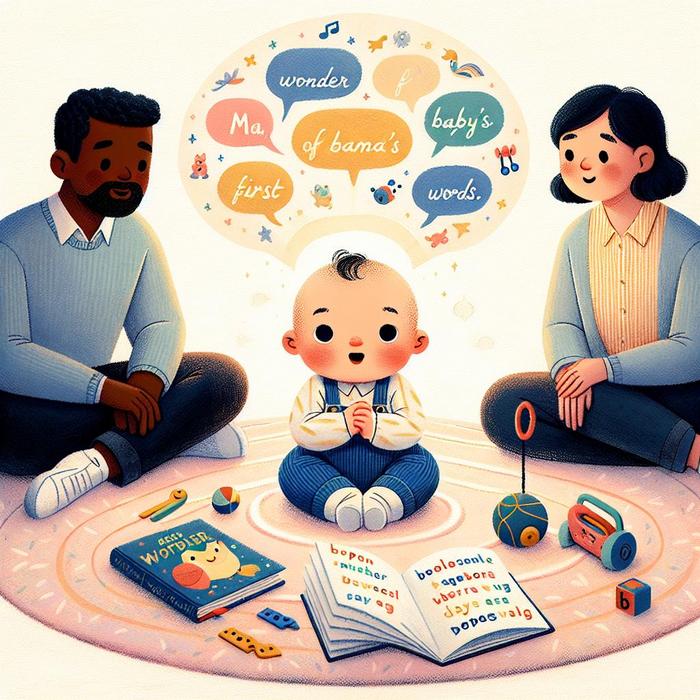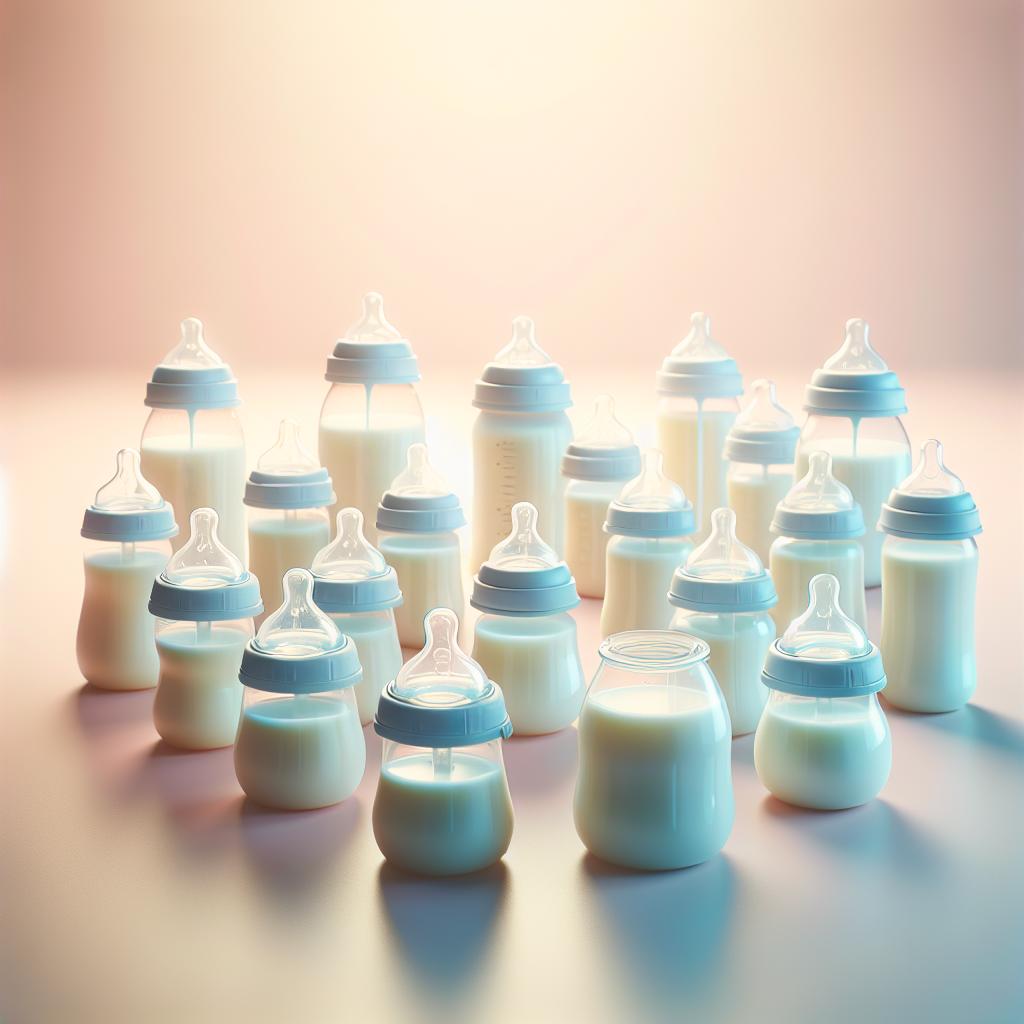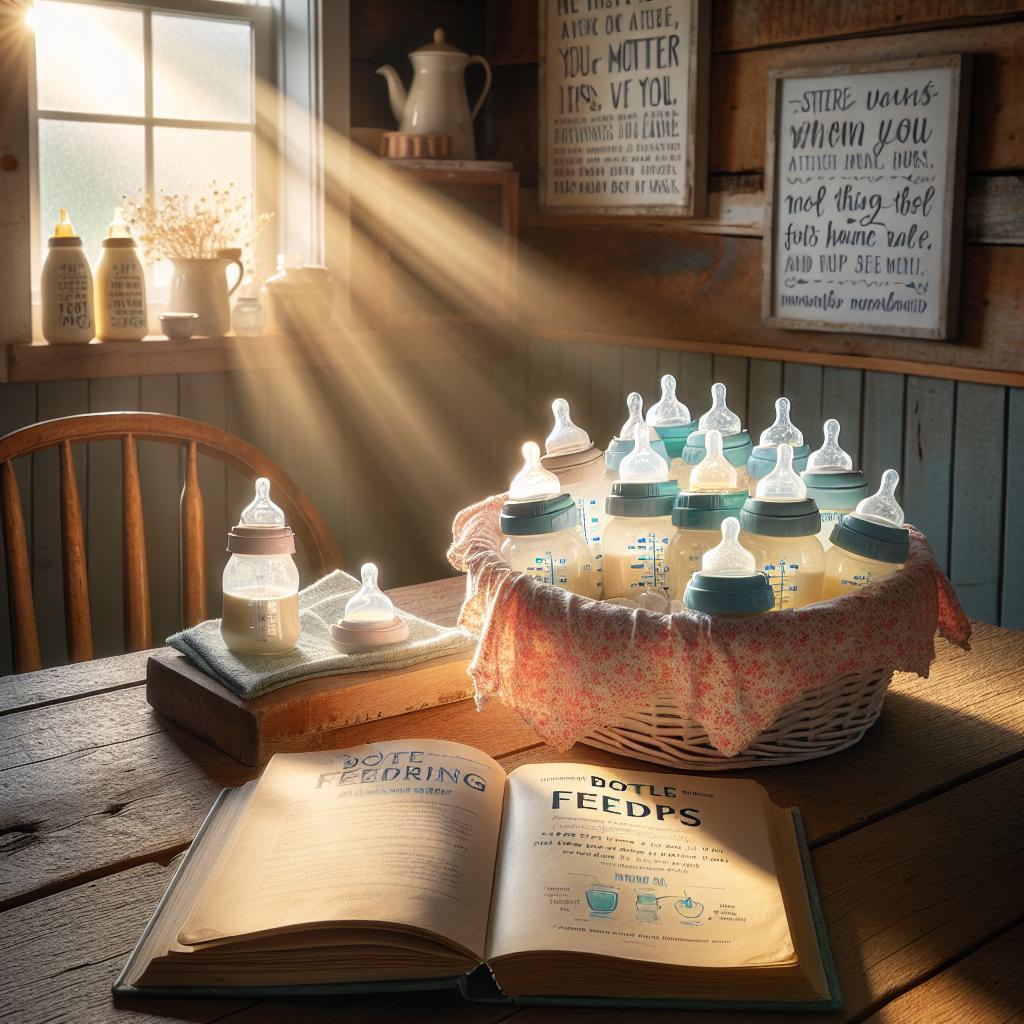The Magical Journey of Language Development
A baby’s first words are a momentous milestone that every parent eagerly anticipates. This remarkable event marks the start of your little one’s journey into language and communication, filled with excitement and discovery.
As your baby transitions from cries and coos to recognisable words, it’s like watching a tiny seed sprout into a blooming flower. It’s a beautiful manifestation of their growth and development. Understanding the evolution of baby’s first words and language development milestones can help parents nurture this process.
Early Speech and Language Development
Even though babies start talking typically around their first birthday, the foundation of language learning begins way earlier. From birth, babies are observing and absorbing the sounds around them. They are primed to listen to your voice, pick up tonal variations, and eventually, mimic these sounds.
The effervescence of their babbling, cooing, and gurgling is not just adorable, but also a crucial part of their speech development. Yet, the journey from cooing to conversing varies for every child. Just like with other baby milestones, there’s no standard timeline or script for a baby’s first words.
- Babies usually start by experimenting with sounds, producing vowels such as “a-a-a” or “o-o-o” around 2 months.
- By six months, these sounds evolve into babbling or repeated consonant-vowel combinations like ‘ba-ba’ or ‘ga-ga’.
- Between 9 to 14 months, babies begin to understand and use gestures, like waving or pointing, aiding their non-verbal communication.
- As they approach their first birthday, most babies say their first words, usually “Mama” or “Dada”.
Spotting The Signs of Speech and Language Development
Apart from uttering their first words, there are several other signs that indicate your baby is developing language skills. These include responding to familiar words, recognizing names of common objects, and following simple instructions. You can read more about other developmental stages on Healthline.
It’s fascinating to watch your baby’s language skills blossom, but remember, it’s not a race. Each baby develops at their own pace, and some might be late bloomers when it comes to speech. It’s crucial not to let common parental fears cloud this joyous journey.
Encouraging Your Baby’s Speech Development
Parents and caregivers play a pivotal role in encouraging a baby’s speech development. Here are some ways to nurture their emerging language skills:
- Engage in ‘baby talk’: Exaggerate your tones, draw out vowels, and express varied emotions. This ‘parentese’ is crucial for your baby’s language development.
- Read to your baby: Introduce them to the colourful world of picture books. Reading nurtures their listening skills, enhances vocabulary, and fosters imagination.
- Respond to their sounds: Communicate with your baby, even when they’re babbling. Responding to their coos and babbles encourages them to continue ‘conversing’.
- Sing to your baby: Songs and nursery rhymes are excellent for teaching new words and sounds.
Remember, enjoying this journey with your little one is the key. Embrace this phase of discovery, and you’ll be rewarded with the sweet sound of your baby’s first words.
Resources for Parents
For more resources on baby’s speech and language development, check out the First Words Project. It offers a wealth of information and support to help parents understand and foster their child’s speech development. Additionally, the article Language Development from 3-12 months on RaisingChildren.net.au provides a detailed monthly guide on what to expect.
Speech Development Disorders and Delays
Sometimes you might notice your child struggling with reaching the baby talk milestones. This doesn’t automatically imply a language disorder, but it suggests that extra observation and possibly, professional help may be required.
Children with language disorders may demonstrate difficulties with various aspects of communication, such as generating language, understanding others, articulation, or social communication. It’s important to consult a paediatrician or a speech-language pathologist if you suspect a delay, as early intervention can make a significant difference in your child’s language development.
Language Learning as a Mirror of Cognitive and Emotional Development
Language development not only marks your baby’s increasing ability to communicate, but it also reflects their emotional and cognitive growth. Babies’ first words often pertain to their most cherished people or most familiar items, reflecting their emotional attachments.
As they grow, their language expands to include words and sentences that represent abstract concepts, questions to understand their environment, and expressions of their emotions. This growing complexity of language mirrors the advances in their cognitive abilities and emotional awareness. Besides, language also plays a critical role in social interactions, thus contributing to social-emotional development.
For families treading the path of multilingualism, the journey of language development can be additionally fascinating. Contrary to popular belief, learning two languages doesn’t confuse children, but rather enhance their cognitive and social skills. The key to bilingual or multilingual development is consistency. Make sure to use the languages regularly, in meaningful contexts and to provide ample opportunities for them to hear and use each language.
Raising a multilingual child can be an engaging journey, filled with unique challenges and rewards. For more insights into bilingual development, check out the WebMD’s guide on language development.
The Joy and Wonder of Hearing the First Words
The moment when your baby utters their first words is an unspeakable joy, marking the transition from their world of instinctive cries to intentional communication. It’s a beautiful milestone on their journey to becoming an interactive human.
Embrace this extraordinary journey, celebrating each small step while offering your loving guidance. As a parent, you are in the best position to nourish, inspire, and rejoice in your baby’s language growth. So buckle up and get ready for an exciting ride filled with laughs, surprises, and lots of ‘baby talk’.
Remember, It’s About More than Words
Above all, remember that communication is about more than words. It’s also about the loving gaze, the pointed finger, the shared laugh – the sparkling moments of connective joy that enrich your relationship with your growing child. As you attentively listen to your baby’s coos, gasps, giggles, and words, you’re also enhancing their sense of being seen, heard, and understood. This emotional nourishment fosters not only their language but also their overall development.
At the end of the day, the blossoming of your baby’s language is a magical journey to be cherished one coo, one babble, one word at a time. Let’s celebrate this wonderful voyage of discovery as your little one unfolds their unique voice in this resonant world.
More Insightful Resources
BabyCenter’s guide on talking milestones provides parents a comprehensive understanding of language development, while the Ultimate Guide to Speech & Language Development offers substantial resources for those who wish to delve deeper.






